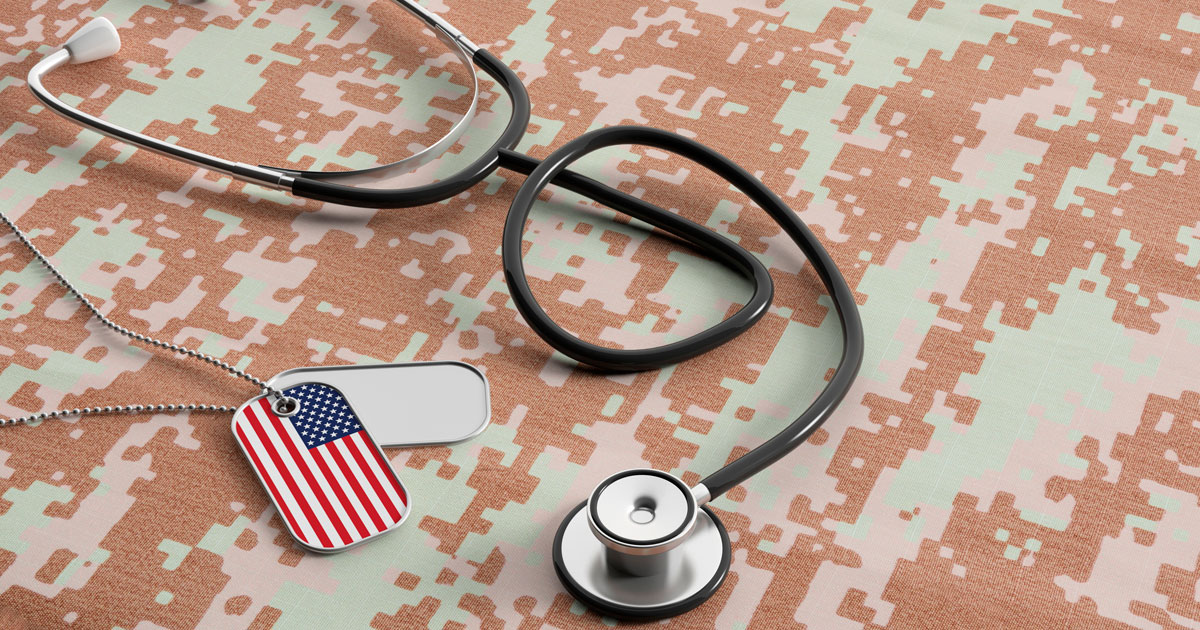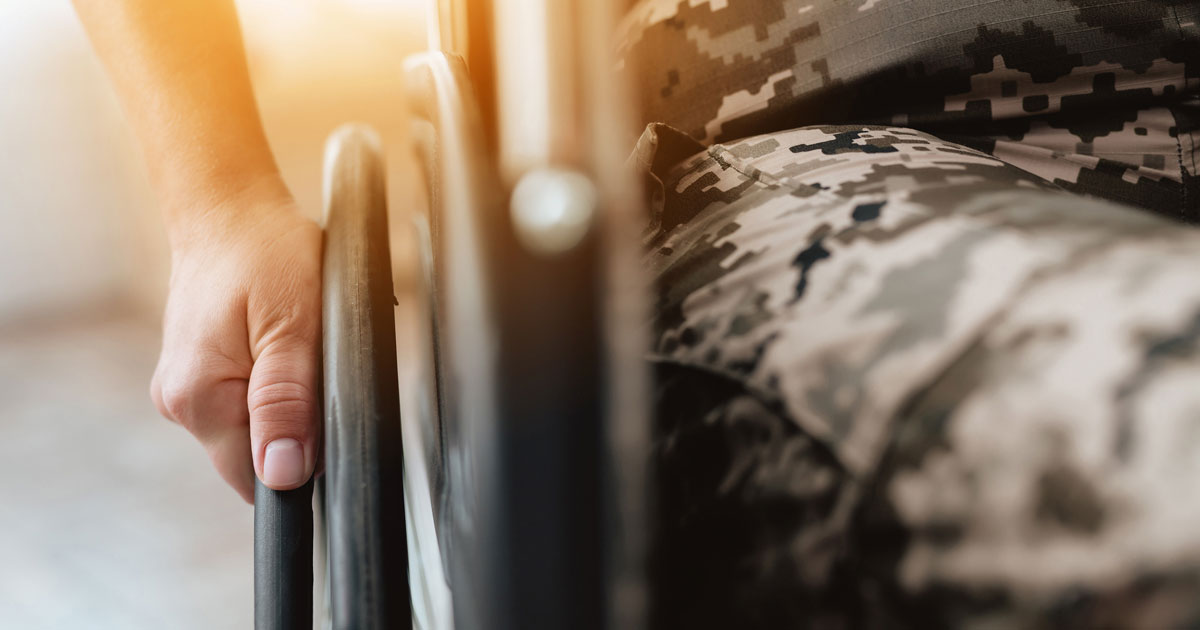
As a population, older adults often become dependent on aid and assistance over the course of their later years. If those people are also veterans, their need for additional care and support can be even greater. From physical injuries to struggles with addiction and mental health issues, veterans often have to deal with significant challenges that result from their time in military service.
Assisted living is just one area where the veteran in your life might need some support. If their injuries require them to use a wheelchair, accessibility at home might become an issue. Living in a noisy part of town or under a flight path can also trigger PTSD symptoms. These and lots of other factors might mean that their home is no longer suitable for permanent habitation, and they may need to consider other options.
Fortunately, veterans benefits — made available through the Department of Veterans Affairs (VA) — exist to provide health care and living situations for exactly these types of challenges. In addition to taking a veteran-specific approach, they also provide help with the things that are common to all aging adults, including:
- Hygiene, including bathing, dressing, and toileting
- Housekeeping, including laundry and cleaning
- Meal preparation
- Medication reminders
- Medical care
No matter their ailment, veterans' eldercare benefits can lessen their day-to-day difficulty and improve their overall quality of life.
Eligibility for Support Through Veterans Affairs
Before detailing the specifics of the various options available to veterans, there are a few important details that families need to be aware of before pursuing health care services and coverage from the Department of Veterans Affairs.
Service Requirements
While benefits are broadly available to veterans, there are some stipulations that determine whether or not your loved one is fully eligible. Veterans and their surviving spouses are eligible for senior care as long as their served 90 days of active duty — including at least one day of duty during what the department considers to be “wartime.”
This does not mean that they have to have experienced combat — even veterans who worked desk jobs may qualify as long as the other prerequisites are met. Also, it is important to note that the Department of Veterans Affairs keeps its own independent timetables for what is considered wartime, and those do not necessarily match up with the official dates of armed international conflict.
Financial Requirements
In addition to service requirements, there are also financial eligibility requirements for benefits. Veterans and their surviving spouses must have a net worth that falls below an amount set annually by Congress (in 2021, that number was set at $130,773) — which includes both their household income and their assets.
Certain expenses do qualify as deductible, however. This can include the costs of senior care, premiums for Medicare or Medicaid, and other types of medical spending. In these cases, the expenses are directly subtracted from their household income.
One potential pitfall to be aware of is the “three-year lookback” period. Basically, veterans need to be careful about any transfers of their assets to friends or family members within three years of applying for Veterans Benefits. If the transferred amount would have put their net worth above the eligibility threshold during that window, they can incur a penalty that disqualifies them from the benefit for up to five years.
Clinical Requirements
Finally, although each individual program has its own eligibility requirements, veterans are generally eligible once they turn 65 years old. Younger veterans may qualify depending on their condition — in particular, they are likely to be eligible if they have suffered a total and permanent disability. The greatest benefit amounts are awarded to veterans who require assistance with the activities of daily living (ADLs), like feeding and bathing.

Assisted Living Benefits for Veterans
The VA offers long-term care services in assisted living facilities, nursing homes, the homes of caregivers, veterans' own homes, and adult daycare centers. The available services include:
- Around the clock nursing and medical care
- Assistance with daily tasks (like bathing, dressing, cooking, and managing medication)
- Physical therapy
- Comfort care and help with pain or other symptoms
- Caregiver support for work, travel or running errands
Many of these services are covered under regular VA health care, but in some cases, copays might still apply. If a needed service is not covered by the VA, it may be covered by Medicare, Medicaid, or private insurance.
There are a number of other options available to veterans to help make their health care more affordable.
Basic Pension
This benefit is available to veterans, and, in addition to meeting the service requirement outlined above, they must also:
- Be at least age 65 with limited or no income
- Be totally and permanently disabled
- Be a permanent resident in a nursing home facility
- Receive Social Security Disability Insurance
- Receive Supplemental Security Income
The monetary award has no specified restrictions, so it is a wonderful way for veterans to contribute funds to cover their health care needs. The benefit can also be extended to a veteran's spouse, and it does not require a Physician's Statement to file.
Aid and Attendance Benefits
Aid and Attendance (A&A) is a pension benefit that helps veterans pay for their health care. The monthly benefit is offered on top of the existing pension a veteran would receive, and it is granted in varying amounts to single veterans, married couples, and surviving spouses.
Designed for people who need the assistance of another person to manage their day-to-day lives, the funds are given out with no stipulations as to how they must be spent. Furthermore, veterans do not have to suffer from a combat-related condition in order to take advantage of the benefit. A diagnosis of Alzheimer's disease or another type of dementia is one of the more common ways to qualify.
In addition to having an income of less than $22,577 per year, a veteran must also:
- Need help with ADL activities
- Be bedridden
- Reside in a long-term care facility
- Have a severe visual impairment
Application forms can be found on the VA website, and eligibility requirements differ from state to state.
Housebound Benefits
If a veteran is confined to their residences as a result of a permanent disability, they may be eligible for Housebound benefits. Generally speaking, a person is considered housebound if they are only able to leave their residence for medical reasons, and when they do, they require the help of another person. They do not have to be confined to their own home but can be residing in the home of a caregiver or in a room of an institution. The benefit is granted in the form of an additional amount added to a veteran's monthly pension.
Housebound benefits cannot be awarded at the same time as Aid and Attendance benefits, so it is important for families to review both programs and decide which one makes the most sense considering their specific needs.
Conclusion
Veterans often have unique needs that go above and beyond those of peers who did not serve. Because of that, the federal government has created programs through the Department of Veterans Affairs that offer care specific to those needs. But even navigating just the non-veteran assisted living options can be a tangled web of complexity. Adding the dynamics of a whole different system on top of that can feel like a bridge too far for many families.
At Keystone Health, our team of trained professionals can talk you through the ins and outs of every program so that you or your loved one can get the level of care that is right for them. If you are in the greater Boise area, start the New Patient Process today to discover all the ways we can help.
